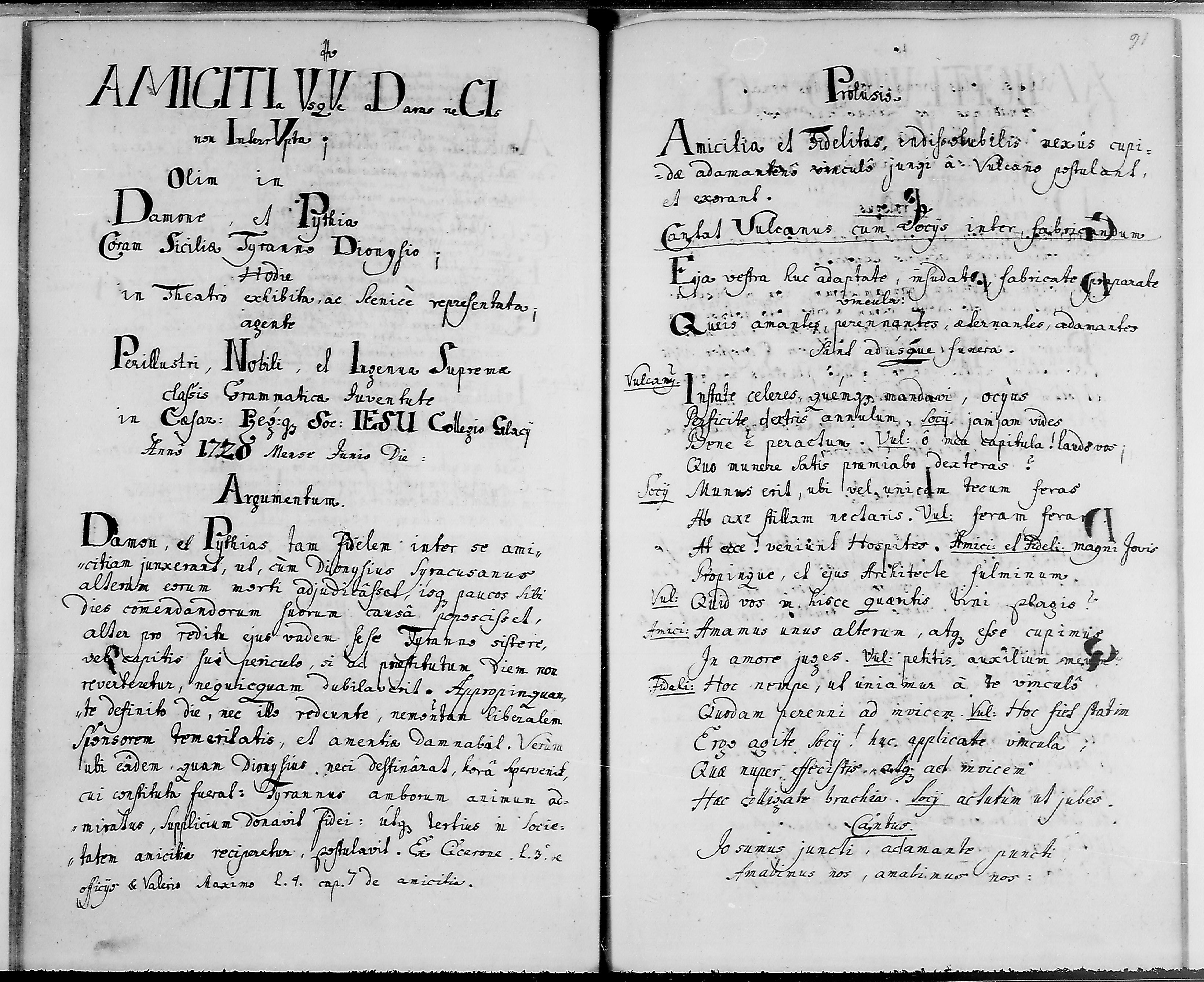Amicitia usque ad aras necis non interrupta
- First performance: Juny 1720, Kłodzko, the highest grammar class
- Author: Adamus Besnecker, SJ (1693-1721)
The play A Friendship Not Interrupted Even in Front of the Altar of Death represents a group of dramas dealing with a theme of interpersonal relations in general, most commonly with relations between a father and sons, brothers or friends. One of the most famous models of faithful friendship were Damon and Pythias who lived on Sicily during the rule of Dionysus I of Syracuse (c. 432–367 BC). Their friendship was so strong that when Damon was sentenced to death by Dionysus, Pythias was willing to become a hostage, so that Damon could leave the prison and organize his things before his death. On the day of the execution, Damon was late and arrived to the site of execution when Pythias was already standing on the scaffolds, ready to die as the hostage instead of his friend. Both started arguing which one of them was to undergo the death, because they both preferred to die themselves, so that the other one could live. Dionysus, touched by this loyalty, granted Damon a pardon in the end. More info in Czech
Text
[Adamus Besnecker]: AMICITIa VsqVe aD aras neCIs non InterrVpta,a olim in Damone et Pythia coram Siciliae tyranno Dionysio, hodie in theatro exhibita ac scenice representata agente Perillustri, Nobili et Ingenua supremae classis grammaticae juventute in Caesareo Regioque Soc. Jesu collegio Glacii anno 1720, mense Junio, die ... Biblioteka Uniwersytecka we Wrocławiu, Oddział Rękopisów, sign. Akc. 1949 KN 180, f. 90v–102v
Synopsis
Not preserved
Magdaléna Jacková: Nejmírnější Pallas. Hry určené gramatikálním třídám jezuitských gymnázií. Praha: Academia, 2016. (= Theatrum Neolatinum. Latinské divadlo v českých zemích, 2.), p. 340-393.
Bibliography
Magdaléna Jacková: Amabimus nos! Láska žárlivost a nenávist na jevištích jezuitských gymnázií. Cornova 4, 2014, č. 1, p. 21–30. Magdaléna Jacková: Jesuit school plays from provincia bohemia SJ written for grammar classes. In A. Steiner-Weber– F. Römer (eds.): Acta conventus Neo-latini Vindobonensis, Leiden, Brill 2018, p. 369–378. DOI: https://doi.org/10.1163/9789004361553_029


